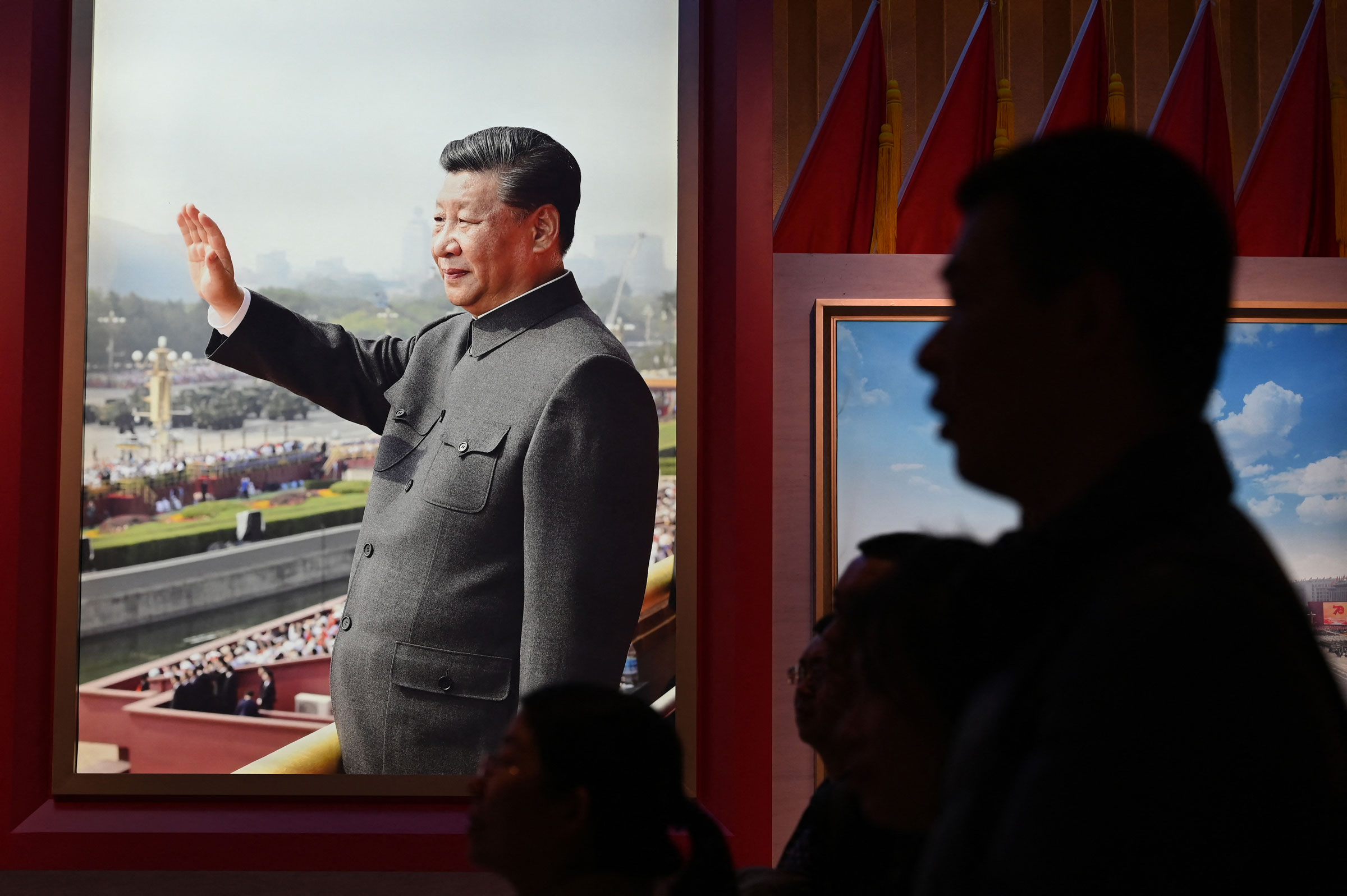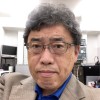A few years ago, President Xi Jinping started warning that a 100-year big storm is coming. As is typical of the early days of a hurricane, one can now feel it. The circumstances and the mood in China have indisputably changed to become more threatening. These changes are mostly due to big cycle forces.
The most joyous and productive environments are ones that have freedom, civility, and creativity, and ones in which people can make their dreams into great realities with prosperity that is shared by most people. This happened in China from around 1980 until around five years ago. It is quite typical for such booms to produce debt bubbles and big wealth gaps that lead the booms to turn into bubbles that turn into busts. That happened in China at the same time as the global great power conflict intensified, so China is now in the post-bubble and great power conflict part of the Big Cycle that is driven by the five big forces that have changed the mood and the environment. In this piece, I will first describe in brief how the Big Cycle has transpired over roughly the past century, and then I will explain the current picture of what is happening today, with a focus on the challenges that China is facing. This history and these dynamics are complex and important to world history and the global order—everything I write here is how I see it based on my own experience, relationships, and research.
How the Big Cycle in China Transpired to Create the Conditions from the Beginning of the PRC Through the Current Conditions
In the 1930-45 period, there was the last 100-year big storm, which was driven classically by the confluence of 1) a debt bust that triggered a global depression, 2) a civil war in China between the rich rightist-capitalists and the poor leftist-communists (which ended in 1949 when the Communists won), 3) an international great power conflict-war that ended in 1945 when the United States (and, to a much lesser extent, Great Britain and Russia) won, creating the American-led world order, 4) many disruptive acts of nature, and 5) big technological changes. That period ended in the classic ways they end, with a debt and economic collapse, one side winning over the other in the great international war and the new world order beginning (in 1945), and one side winning over the other in the civil war and the new domestic order beginning (in 1949).
Read More: Column: Why the U.S. Economy Is Surging, as China’s Stumbles
From 1949 (the year the new domestic order was created via the PRC being formed) until 1978 (the year Deng Xiaoping came to power), there was a typical post-war consolidation period led by Mao in the way he wanted via a domestic economic policy that was communist, a domestic political policy that was oppressive (dictatorial and designed to purge the opposition), and a foreign policy that was isolationist. That and big disruptive acts of nature led to many big challenges and big bad periods and few economic and technological advances. Mao and that era died in 1976.
When Deng Xiaoping came to power in 1978, he reduced the one-man control and repressions, increased collective leadership, replaced hardcore autocratic communism with more free markets and increasingly larger doses of capitalism, and opened China up to foreigners to learn and earn from them. It was like sprinkling water on fertile ground that led to a great blossoming. From 1978 until Xi came to power, there was a classic capitalist rejuvenation that led to a boom in which the economy, living standards, and debt all grew greatly. At the same time, China was not perceived by other countries to be a threat to the leading great power (the United States) and its world order. As a result, China had a joyous and productive environment in which there was a relatively large increase in freedom, civility, and creativity, and in which people could make their dreams into great realities and most people benefited, though the rich benefited more than the poor. As is typically the case, these policies also produced greater wealth gaps and greater amounts of corruption. That began to end when Xi came to power, not because he came to power but because of where China was in its Big Cycle and how the new leadership approached it.
When President Xi came to power in 2012, a roughly 11-year transition began that brought China from what it was like in 2012 to what it is like today. I was lucky to see it up close. At the start of his presidency, Xi and the leadership’s main goals were to reform the economy and eliminate corruption. For most of Xi’s first five-year term there was a) still an openness to outside thinking, b) a strong desire to further reform the economy by making it more market-driven and building and reforming the capital markets, and c) strong actions taken to eliminate corruption. The senior leaders chosen were the ones who were inclined to do those things. Of course, how to do these things was debated and some people benefited from the changes while others were hurt by them, so in Xi’s first term there was a movement to consolidate power via a move to “core leadership.” This became most clear in the leadership changes that accompanied the shift from the first to the second five-year term under Xi. In 2015, Xi put out his bold 2025 plan, which was viewed as aspirational by the Chinese and threatening by Americans. China could no longer “hide power.” Americans viewed the Chinese as a threat. By the time Donald Trump came to power in 2017 and Xi began his second term in 2017, the great power conflict had begun. In 2019-20, COVID-19 emerged. At the same time, the debt bubble and the wealth gaps had grown—so the classic convergence of forces led to the formation of the “100-year big storm.” In 2021, about halfway through Xi’s second term, China’s domestic debt bubble burst and the international great power conflict intensified. At the beginning of Xi’s third term in October 2022, China’s leadership changed from reform-minded globalists to loyal communist nationalists, and purges and crackdowns ensued, which brings us up until now. I will soon describe what things now look like, but before I do, I want to drive home the point about how the Big Cycle is playing a big role in driving what has happened.
The Hand Xi Was Dealt and How He Is Choosing to Play That Hand
A Chinese leader, historian, and friend of mine told me several years ago that the conditions of the times create the type of leader that emerges because the evolutionary process pulls out the leader who suits the environment. In other words, how the times are transpiring determines the leader even more than the leader determines how the times are going. He gave me the book The Role of the Individual in History by the Russian political philosopher Georgi Plekhanov, which you might find interesting. When Henry Kissinger was writing his book on leadership and we talked about what makes a great leader, he made the same point—that what made a great leader at the time depended on what was needed at the time. For example, Konrad Adenauer (Germany’s chancellor immediately after World War II) was a great leader for a country that was defeated after a war because he knew how to be both deferential and pushy enough to deal with both 1) the dominant powers that Germany had just came out of a horrendous war with and 2) a domestic population that was defeated and destroyed in most ways. My point is that what is happening now and Xi’s leadership must be looked at within the context of the Big Cycle. In other words, it is important to distinguish between the hand that Xi was dealt and how he has been choosing to play it. It is also important to understand what is happening now and how Xi is playing his hand without judging these things, because judging them can stand in the way of understanding them. My goal is only to understand what’s happening and what’s likely to happen, and I don’t want to let judgments stand in the way of doing that.
Read More: How China Could Play a Key Role in the Israel-Hamas War—and Why It’s Not
As I see it, the template to keep in mind is that capitalism (with or without “Chinese characteristics”) produces credit that creates spending power, which when used well unleashes creativity and prosperity, which produces the upward wave in the cycle. But it also inevitably creates a lot of debt and wealth gaps, and when the debt becomes too large to pay off and there are big wealth gaps, that causes the cycle to reverse. When there is a lot of debt and big wealth gaps at the same time as there are great domestic and international power conflicts and/or great disruptive changes in nature (like droughts, floods, and pandemics, which China is especially prone to) and great changes in technology, there is an increased likelihood of a “100-year big storm.” That is the current environment in China. Destiny put Xi in the position he is in, and how he plays his hand will reflect where he is coming from, motivating him to do what he does, which will have a big influence on what happens.
History shows that in all countries through all times during these very difficult 100-year-storm-like periods, leaders go to much more autocratic policies because the alternative becomes great internal conflict and disorder, and typically there are forced changes of leadership that those in power fight against. This is especially true in the Chinese culture. Losing the “mandate of heaven” is something everyone is aware of. A Chinese scholar told me that 38% of China’s emperors died of unnatural causes while in power. There are many dynasties that went through such big storm periods and different philosophies that emperors used to guide them. “Legalism” is the belief that people are motivated by self-interest, especially during difficult times, so they must be required to strictly follow the emperor and his rules, especially big storm periods. The legalist approach with Marxist/Maoist characteristics appears to be the approach Xi has chosen. To be clear, I don’t think that what it is exactly is clear to either non-policy makers or policy makers. They appear to be figuring out the “dialectic.” For example, I know that entrepreneurship and open markets remain much more open than my characterization of a legalist approach with Marxist/Maoist characteristics would seem to imply.
While people can debate the merits of Xi and the Chinese government creating a fearful and strict-control environment to get people to behave the way the government wants them to behave, just as people can debate the merits of the American government’s more democratic and disorderly approach, it is more important to see what’s happening as objectively as possible than to be quick to pass judgments on it. Here is the current picture of what is happening as I see it.
The Current Picture of What Is Happening in China
I will describe this in terms of what I see as the five big forces that drive the changing world order and tend to evolve in big cycles. They are: how well the economic system works, how well the internal order works within countries, and how well the world order works between countries, along with acts of nature and technology.
1. There are big debt and economic problems that are depressing economic activity, prices, and psychology. Domestically, it is a very difficult time for China financially because many people are suffering the negative wealth effects of falling a) real estate prices, b) equity and other asset prices, c) employment, and d) employee compensation. Also, there are debt and financial problems that exist in many companies and many local governments that are drags, which, if not properly dealt with, will have bad consequences for a long time. These things have contributed to the mood having become more dour.
Read More: China’s Real Estate Crisis Has No Easy Fix—Just Ask Chinese Soccer Fans
How should these problems be dealt with? To me, as a macroeconomic thinker who approaches such debt and economic problems more like a doctor than an ideologue, the leadership needs to have a debt restructuring, which it should do via engineering a beautiful deleveraging (see my book Principles for Navigating Big Debt Crises, which I’m giving you here for free if you’re interested in delving into what that looks like) or it will have a “lost decade” like Japan’s. While many people think policy makers should ease monetary policy to create more credit, I think they correctly view creating more credit and debt like giving an alcoholic a drink to help ease withdrawal problems. I believe that they should engineer both 1) a deleveraging (which is deflationary, depressing, and will reduce the debt burden) and 2) an easing of monetary policy (which is inflationary, stimulative, and will ease the debt burden) so that the deflationary ways of reducing debt and the inflationary ways of doing it balance. This is what I mean by a “beautiful deleveraging.” In my opinion, this should have been done two years ago and if not done will probably lead to a lost decade. I think some of the economic leaders, especially those who did this under Zhu Rongji, understand how to do this, but it is very difficult and politically dangerous to do because it engineers big changes in wealth, which is politically challenging, especially during a difficult time because people squawk. In my opinion, if the leadership doesn’t execute a beautiful deleveraging, China will have a Japanese-style lost decade with Marxist characteristics.
The aging population issue is a heavy weight for those who are old, for their children, and for the government’s finances and social issues. The average age of retirement is 53 and the average age of death is 84, so people without incomes have to be taken care of for 31 years on average. This is made more difficult because the previous one-child policy means that one person has to take care of two parents. This has been a depressant in the mood and the financial situation. While the retirement age should be raised and a social support system including old-age care should be improved, neither is happening at an adequate pace. That is mostly because people don’t want their retirement ages to rise so doing that is politically untenable and because the government bureaucracy is moving very slowly, especially now that most government officials are reluctant to take bold actions because those can be politically disruptive (as they were in other countries, most notably France) and people squawk, so it takes courage. Also, with the workforce declining and old people getting ill and passing away, this is burdensome and depressing. Once again, this is likely to remain a burden unless the government deals with it in a more forceful way.
2. The internal wealth gap and the resulting conflict over wealth and values are intensifying, which is fear-inducing. The internal wealth gap has led to the government’s push for common prosperity and government-directed, seemingly arbitrary rather than rule-based actions. These moves appear to some people to be anti-capitalist, while to others they are simply the government’s messages to people to stay out of politics and do what the leadership wants them to do to help society. In any case, it’s fear-inducing and oppressive, especially for the capitalist elites. On a recent trip to China, my Chinese friends reminded me that throughout Chinese history, it’s typically been the case that you can’t be rich and be a government official. The merchant-capitalist who sought financial gain was traditionally assumed to be dangerously greedy and easily corruptible, and not allowed to be in government. It wasn’t until 2002 that these merchant-capitalists were allowed to become Communist Party members. That was during the reformist period. Now it is no longer as “glorious to be rich.” As is increasingly the case around the world but more so in China, there is a greater inclination to think that the rich are selfish and corrupt. Purging and rooting out corruption is also going on in most areas, perhaps most notably in the military. In other words, it’s a time of big policing and strict enforcing of what should be done and how people should behave that has become threatening to some.
With the pendulum now swinging in the more legalistic, autocratic, communist direction, naturally people are asking how far it will go, which leads people to probably exaggerate the possibilities. My study of Chinese history (and my studies of similar histories in analogous periods) has put in my mind, which are also in some others’ minds, the memories of anti-rightist-capitalist campaigns that led to the persecutions of such people, the confiscations of wealth, the shutting down of stock markets, the enforcing of strict foreign exchange controls, the restrictions against leaving China, and the questions about whether that is where China is headed. People remember the civil war and the changes after 1949. The elites who are experiencing these pains to a greater degree are more concerned. It appears that the “elites” are most concerned and least supportive of Xi, while many who feel Xi is trying to take care of them from being exploited by the elites are strongly supportive of him. It appears that Xi and the leadership think that most of those people who are discontented are spoiled and unappreciative of how much better off they are than they were not long ago and that they need to toughen up, get disciplined, and get in line with the program to help others. This has contributed to the mood becoming more dour and pessimistic.
No one knows how far the pendulum will swing back toward the more Maoist/Marxist ways of doing things. The absence of clear communication from the leadership about the motivations behind their actions and where they are headed is leading to greater amounts of imaginary speculation than there would be if there were clearer communication. The impediment is that communicating more directly is not the Chinese leadership’s traditional way of doing things, which, as China goes back toward the more traditional ways of doing things, is understandable. China’s new premier Li Qiang’s decision to discontinue press conferences for the first time in 30 years is consistent with the move to lesser clarity rather than greater clarity at this time of greater risk.
3. The great-power conflict between China and the US is having a big negative effect. It is causing foreign investors and businesses and domestic investors and businesses to want to diversify or leave China and to fear being discriminated against globally for being friendly to China. In trade and capital flows, a cat-and-mouse game has developed that has led companies and people to move to neutral countries and to try to appear to be non-Chinese or not Chinese sympathizers, so much so that the Chinese are having problems getting other countries and companies to accept them being there and/or investing in them. For example, Chinese businesses setting up Mexican companies and exporting to the US to get around tariffs on Chinese goods is leading the US to explore moving to look through the entities to identify the beneficial owners to catch and punish these entities. The TikTok identity pursuit game is the most attention-getting example. Even in the industries and world markets that China has become very competitive in—most obviously electric vehicles, batteries, green energy (solar and wind) products, chips, artificial intelligence, quantum computing, space, etc.—there are geopolitical conflicts that blend with economic conflicts, so they are increasingly run by governments. The not-too-long-ago old days of free and open markets and the idea that government interference in them is bad are gone for the foreseeable future. This will affect China because it has excess capacity and will be accused of dumping, leading to big tariff increases as protectionism and nationalism come back into fashion as they did in the 1930s. The Chinese economic model is based on gaining an increasing share of world manufacturing output, which has a good chance of not happening because countries that in the past have imported Chinese goods are more likely to prevent them with rising tariffs.
In addition to economic clashes with the West, there are cultural clashes. They were described to me by a Chinese leader as mutual cultural ignorance with evolutionary change. He explained that 1) the Anglo-European culture extended by Great Britain passing dominance to the US is having problems accepting the rise of China and its Chinese-Asian culture, 2) there are failures of the two sides to understand and accept the different approaches, and 3) Western culture is more zero-sum than win-win and more inclined to slip into lose-lose wars. I agree with his assessment and find it tragic. It is certainly the case that the Chinese fight wars differently. Think about the “art of war”—fighting to win by focusing on the “pressure points” that can weaken or hurt the other side without even being seen. For example, if one were conjecturing how the Chinese might play the existing geopolitical situation if the conflict rises, because the US is overextended in two wars, the Chinese might think about where there could be a third front—like a war in Asia, something like a conflict with the Philippines or North Korea, that would put the two sides in the US election in the awkward position of having to step into a third conflict (which would be unpopular in the US) or not appear strong enough. Almost all leaders on both sides believe that the other side is working to destroy the other and are working to be able to destroy the other. They are in an intensifying prisoner’s dilemma. To be clear, I don’t believe that either side wants to provoke the other side, and I do believe that greater understanding of and respect for the other’s culture are required. But more than that, each should ask the other, “What are your greatest existential fears?” and work with the other side to figure out what can be done to alleviate them. Without that, the odds of some sort of a devastating war within the next 10 years are high and people are positioning themselves with that possibility in mind, which itself is very damaging.
4. Climate and climate-related issues are big, threatening, and top-of-mind. They extend from having droughts, floods, and pandemics to not having enough clean water. They will probably cost a lot and hurt a lot.
5. While technology development has always been a critical defining force and while it is well known that whoever wins the technology war wins the economic, geopolitical, and military wars, this has never been truer than now, and China and the US are the leaders and big adversaries. Throughout the history of war, the desired path has been to secretively build the technology that is strong enough so that showing it to the opposition will make the opposition become submissive. Watch the movie Oppenheimer for a refresher. That is certainly going on. There are many technologies that both China and the US are putting huge amounts of talent and resources into using their different approaches, one more top-down, government-directed and one more bottom-up, corporate/capitalist—some of which we know about (e.g., chips, AI, quantum computing, outer space, cyber, batteries, clean energy, electric vehicles, robotics, etc.), some of which China is in the lead on, and some of which the US is in the lead on, and none of which we can anticipate exactly how it will transpire in the future. I won’t digress into looking into these because it would take too long, and now is the time to step back up to look at the big picture.
For the previously described reasons it is understandable why President Xi believes that there is a 100-year storm on the horizon. That assessment seems right to me. At the same time, I am not certain of anything other than that I am trying to be as objective and helpful as possible in bringing about understanding. China is an enigma that I am trying to make less enigmatic. I have been very lucky to see up close for nearly 40 years what has happened in China, the United States, and China-US relations, all of which I care about deeply. And I have found it all intensely interesting and important to watch. It seems that we all have been affected by the supposed Chinese curse “May you live in interesting times.”
MORE MUST-READS FROM TIME
- Exclusive: Google Workers Revolt Over $1.2 Billion Contract With Israel
- Jane Fonda Champions Climate Action for Every Generation
- Stop Looking for Your Forever Home
- The Sympathizer Counters 50 Years of Hollywood Vietnam War Narratives
- The Bliss of Seeing the Eclipse From Cleveland
- Hormonal Birth Control Doesn’t Deserve Its Bad Reputation
- The Best TV Shows to Watch on Peacock
- Want Weekly Recs on What to Watch, Read, and More? Sign Up for Worth Your Time
CONTACT US AT LETTERS@TIME.COM
In China: The 100-Year Storm on the Horizon and How the Five Big Forces Are Playing Out

The most joyous and productive environments are ones that have freedom, civility, and creativity, and ones in which people can make their dreams into great realities with prosperity that is shared by most people. This happened in China from around 1980 until around five years ago. It is quite typical for such booms to produce debt bubbles and big wealth gaps that lead the booms to turn into bubbles that turn into busts. That happened in China at the same time as the global great power conflict intensified, so China is now in the post-bubble and great power conflict part of the Big Cycle that is driven by the five big forces that have changed the mood and the environment. In this piece, I will first describe in brief how the Big Cycle has transpired over roughly the past century, and then I will explain the current picture of what is happening today, with a focus on the challenges that China is facing. This history and these dynamics are complex and important to world history and the global order—everything I write here is how I see it based on my own experience, relationships, and research.
How the Big Cycle in China Transpired to Create the Conditions from the Beginning of the PRC Through the Current Conditions
- In the 1930-45 period, there was the last 100-year big storm, which was driven classically by the confluence of 1) a debt bust that triggered a global depression, 2) a civil war in China between the rich rightist-capitalists and the poor leftist-communists (which ended in 1949 when the Communists won), 3) an international great power conflict-war that ended in 1945 when the United States (and, to a much lesser extent, Great Britain and Russia) won, creating the American-led world order, 4) many disruptive acts of nature, and 5) big technological changes. That period ended in the classic ways they end, with a debt and economic collapse, one side winning over the other in the great international war and the new world order beginning (in 1945), and one side winning over the other in the civil war and the new domestic order beginning (in 1949).
- From 1949 (the year the new domestic order was created via the PRC being formed) until 1978 (the year Deng Xiaoping came to power), there was a typical post-war consolidation period led by Mao in the way he wanted via a domestic economic policy that was communist, a domestic political policy that was oppressive (dictatorial and designed to purge the opposition), and a foreign policy that was isolationist. That and big disruptive acts of nature led to many big challenges and big bad periods and few economic and technological advances. Mao and that era died in 1976.
- When Deng Xiaoping came to power in 1978, he reduced the one-man control and repressions, increased collective leadership, replaced hardcore autocratic communism with more free markets and increasingly larger doses of capitalism, and opened China up to foreigners to learn and earn from them. It was like sprinkling water on fertile ground that led to a great blossoming. From 1978 until Xi came to power, there was a classic capitalist rejuvenation that led to a boom in which the economy, living standards, and debt all grew greatly. At the same time, China was not perceived by other countries to be a threat to the leading great power (the United States) and its world order. As a result, China had a joyous and productive environment in which there was a relatively large increase in freedom, civility, and creativity, and in which people could make their dreams into great realities and most people benefited, though the rich benefited more than the poor. As is typically the case, these policies also produced greater wealth gaps and greater amounts of corruption. That began to end when Xi came to power, not because he came to power but because of where China was in its Big Cycle and how the new leadership approached it.
- When President Xi came to power in 2012, a roughly 11-year transition began that brought China from what it was like in 2012 to what it is like today. I was lucky to see it up close. At the start of his presidency, Xi and the leadership’s main goals were to reform the economy and eliminate corruption. For most of Xi’s first five-year term there was a) still an openness to outside thinking, b) a strong desire to further reform the economy by making it more market-driven and building and reforming the capital markets, and c) strong actions taken to eliminate corruption. The senior leaders chosen were the ones who were inclined to do those things. Of course, how to do these things was debated and some people benefited from the changes while others were hurt by them, so in Xi’s first term there was a movement to consolidate power via a move to “core leadership.” This became most clear in the leadership changes that accompanied the shift from the first to the second five-year term under Xi. In 2015, Xi put out his bold 2025 plan, which was viewed as aspirational by the Chinese and threatening by Americans. China could no longer “hide power.” Americans viewed the Chinese as a threat. By the time Donald Trump came to power in 2017 and Xi began his second term in 2017, the great power conflict had begun. In 2019-20, COVID-19 emerged. At the same time, the debt bubble and the wealth gaps had grown—so the classic convergence of forces led to the formation of the “100-year big storm.” In 2021, about halfway through Xi’s second term, China’s domestic debt bubble burst and the international great power conflict intensified. At the beginning of Xi’s third term in October 2022, China’s leadership changed from reform-minded globalists to loyal communist nationalists, and purges and crackdowns ensued, which brings us up until now. I will soon describe what things now look like, but before I do, I want to drive home the point about how the Big Cycle is playing a big role in driving what has happened.
The Hand Xi Was Dealt and How He Is Choosing to Play That Hand
A Chinese leader, historian, and friend of mine told me several years ago that the conditions of the times create the type of leader that emerges because the evolutionary process pulls out the leader who suits the environment. In other words, how the times are transpiring determines the leader even more than the leader determines how the times are going. He gave me the book The Role of the Individual in History by the Russian political philosopher Georgi Plekhanov, which you might find interesting. When Henry Kissinger was writing his book on leadership and we talked about what makes a great leader, he made the same point—that what made a great leader at the time depended on what was needed at the time. For example, Konrad Adenauer (Germany’s chancellor immediately after World War II) was a great leader for a country that was defeated after a war because he knew how to be both deferential and pushy enough to deal with both 1) the dominant powers that Germany had just came out of a horrendous war with and 2) a domestic population that was defeated and destroyed in most ways. My point is that what is happening now and Xi’s leadership must be looked at within the context of the Big Cycle. In other words, it is important to distinguish between the hand that Xi was dealt and how he has been choosing to play it. It is also important to understand what is happening now and how Xi is playing his hand without judging these things, because judging them can stand in the way of understanding them. My goal is only to understand what’s happening and what’s likely to happen, and I don’t want to let judgments stand in the way of doing that.
As I see it, the template to keep in mind is that capitalism (with or without “Chinese characteristics”) produces credit that creates spending power, which when used well unleashes creativity and prosperity, which produces the upward wave in the cycle. But it also inevitably creates a lot of debt and wealth gaps, and when the debt becomes too large to pay off and there are big wealth gaps, that causes the cycle to reverse. When there is a lot of debt and big wealth gaps at the same time as there are great domestic and international power conflicts and/or great disruptive changes in nature (like droughts, floods, and pandemics, which China is especially prone to) and great changes in technology, there is an increased likelihood of a “100-year big storm.” That is the current environment in China. Destiny put Xi in the position he is in, and how he plays his hand will reflect where he is coming from, motivating him to do what he does, which will have a big influence on what happens.
History shows that in all countries through all times during these very difficult 100-year-storm-like periods, leaders go to much more autocratic policies because the alternative becomes great internal conflict and disorder, and typically there are forced changes of leadership that those in power fight against. This is especially true in the Chinese culture. Losing the “mandate of heaven” is something everyone is aware of. A Chinese scholar told me that 38% of China’s emperors died of unnatural causes while in power. There are many dynasties that went through such big storm periods and different philosophies that emperors used to guide them. “Legalism” is the belief that people are motivated by self-interest, especially during difficult times, so they must be required to strictly follow the emperor and his rules, especially big storm periods. The legalist approach with Marxist/Maoist characteristics appears to be the approach Xi has chosen. To be clear, I don’t think that what it is exactly is clear to either non-policy makers or policy makers. They appear to be figuring out the “dialectic.” For example, I know that entrepreneurship and open markets remain much more open than my characterization of a legalist approach with Marxist/Maoist characteristics would seem to imply.
While people can debate the merits of Xi and the Chinese government creating a fearful and strict-control environment to get people to behave the way the government wants them to behave, just as people can debate the merits of the American government’s more democratic and disorderly approach, it is more important to see what’s happening as objectively as possible than to be quick to pass judgments on it. Here is the current picture of what is happening as I see it.
The Current Picture of What Is Happening in China
I will describe this in terms of what I see as the five big forces that drive the changing world order and tend to evolve in big cycles. They are: how well the economic system works, how well the internal order works within countries, and how well the world order works between countries, along with acts of nature and technology.
- There are big debt and economic problems that are depressing economic activity, prices, and psychology. Domestically, it is a very difficult time for China financially because many people are suffering the negative wealth effects of falling a) real estate prices, b) equity and other asset prices, c) employment, and d) employee compensation. Also, there are debt and financial problems that exist in many companies and many local governments that are drags, which, if not properly dealt with, will have bad consequences for a long time. These things have contributed to the mood having become more dour.
How should these problems be dealt with? To me, as a macroeconomic thinker who approaches such debt and economic problems more like a doctor than an ideologue, the leadership needs to have a debt restructuring, which it should do via engineering a beautiful deleveraging (see my book Principles for Navigating Big Debt Crises, which I’m giving you here for free if you’re interested in delving into what that looks like) or it will have a “lost decade” like Japan’s. While many people think policy makers should ease monetary policy to create more credit, I think they correctly view creating more credit and debt like giving an alcoholic a drink to help ease withdrawal problems. I believe that they should engineer both 1) a deleveraging (which is deflationary, depressing, and will reduce the debt burden) and 2) an easing of monetary policy (which is inflationary, stimulative, and will ease the debt burden) so that the deflationary ways of reducing debt and the inflationary ways of doing it balance. This is what I mean by a “beautiful deleveraging.” In my opinion, this should have been done two years ago and if not done will probably lead to a lost decade. I think some of the economic leaders, especially those who did this under Zhu Rongji, understand how to do this, but it is very difficult and politically dangerous to do because it engineers big changes in wealth, which is politically challenging, especially during a difficult time because people squawk. In my opinion, if the leadership doesn’t execute a beautiful deleveraging, China will have a Japanese-style lost decade with Marxist characteristics.
The aging population issue is a heavy weight for those who are old, for their children, and for the government’s finances and social issues. The average age of retirement is 53 and the average age of death is 84, so people without incomes have to be taken care of for 31 years on average. This is made more difficult because the previous one-child policy means that one person has to take care of two parents. This has been a depressant in the mood and the financial situation. While the retirement age should be raised and a social support system including old-age care should be improved, neither is happening at an adequate pace. That is mostly because people don’t want their retirement ages to rise so doing that is politically untenable and because the government bureaucracy is moving very slowly, especially now that most government officials are reluctant to take bold actions because those can be politically disruptive (as they were in other countries, most notably France) and people squawk, so it takes courage. Also, with the workforce declining and old people getting ill and passing away, this is burdensome and depressing. Once again, this is likely to remain a burden unless the government deals with it in a more forceful way.
2. The internal wealth gap and the resulting conflict over wealth and values are intensifying, which is fear-inducing. The internal wealth gap has led to the government’s push for common prosperity and government-directed, seemingly arbitrary rather than rule-based actions. These moves appear to some people to be anti-capitalist, while to others they are simply the government’s messages to people to stay out of politics and do what the leadership wants them to do to help society. In any case, it’s fear-inducing and oppressive, especially for the capitalist elites. On a recent trip to China, my Chinese friends reminded me that throughout Chinese history, it’s typically been the case that you can’t be rich and be a government official. The merchant-capitalist who sought financial gain was traditionally assumed to be dangerously greedy and easily corruptible, and not allowed to be in government. It wasn’t until 2002 that these merchant-capitalists were allowed to become Communist Party members. That was during the reformist period. Now it is no longer as “glorious to be rich.” As is increasingly the case around the world but more so in China, there is a greater inclination to think that the rich are selfish and corrupt. Purging and rooting out corruption is also going on in most areas, perhaps most notably in the military. In other words, it’s a time of big policing and strict enforcing of what should be done and how people should behave that has become threatening to some.
With the pendulum now swinging in the more legalistic, autocratic, communist direction, naturally people are asking how far it will go, which leads people to probably exaggerate the possibilities. My study of Chinese history (and my studies of similar histories in analogous periods) has put in my mind, which are also in some others’ minds, the memories of anti-rightist-capitalist campaigns that led to the persecutions of such people, the confiscations of wealth, the shutting down of stock markets, the enforcing of strict foreign exchange controls, the restrictions against leaving China, and the questions about whether that is where China is headed. People remember the civil war and the changes after 1949. The elites who are experiencing these pains to a greater degree are more concerned. It appears that the “elites” are most concerned and least supportive of Xi, while many who feel Xi is trying to take care of them from being exploited by the elites are strongly supportive of him. It appears that Xi and the leadership think that most of those people who are discontented are spoiled and unappreciative of how much better off they are than they were not long ago and that they need to toughen up, get disciplined, and get in line with the program to help others. This has contributed to the mood becoming more dour and pessimistic.
No one knows how far the pendulum will swing back toward the more Maoist/Marxist ways of doing things. The absence of clear communication from the leadership about the motivations behind their actions and where they are headed is leading to greater amounts of imaginary speculation than there would be if there were clearer communication. The impediment is that communicating more directly is not the Chinese leadership’s traditional way of doing things, which, as China goes back toward the more traditional ways of doing things, is understandable. China’s new premier Li Qiang’s decision to discontinue press conferences for the first time in 30 years is consistent with the move to lesser clarity rather than greater clarity at this time of greater risk.
3. The great-power conflict between China and the US is having a big negative effect. It is causing foreign investors and businesses and domestic investors and businesses to want to diversify or leave China and to fear being discriminated against globally for being friendly to China. In trade and capital flows, a cat-and-mouse game has developed that has led companies and people to move to neutral countries and to try to appear to be non-Chinese or not Chinese sympathizers, so much so that the Chinese are having problems getting other countries and companies to accept them being there and/or investing in them. For example, Chinese businesses setting up Mexican companies and exporting to the US to get around tariffs on Chinese goods is leading the US to explore moving to look through the entities to identify the beneficial owners to catch and punish these entities. The TikTok identity pursuit game is the most attention-getting example. Even in the industries and world markets that China has become very competitive in—most obviously electric vehicles, batteries, green energy (solar and wind) products, chips, artificial intelligence, quantum computing, space, etc.—there are geopolitical conflicts that blend with economic conflicts, so they are increasingly run by governments. The not-too-long-ago old days of free and open markets and the idea that government interference in them is bad are gone for the foreseeable future. This will affect China because it has excess capacity and will be accused of dumping, leading to big tariff increases as protectionism and nationalism come back into fashion as they did in the 1930s. The Chinese economic model is based on gaining an increasing share of world manufacturing output, which has a good chance of not happening because countries that in the past have imported Chinese goods are more likely to prevent them with rising tariffs.
In addition to economic clashes with the West, there are cultural clashes. They were described to me by a Chinese leader as mutual cultural ignorance with evolutionary change. He explained that 1) the Anglo-European culture extended by Great Britain passing dominance to the US is having problems accepting the rise of China and its Chinese-Asian culture, 2) there are failures of the two sides to understand and accept the different approaches, and 3) Western culture is more zero-sum than win-win and more inclined to slip into lose-lose wars. I agree with his assessment and find it tragic. It is certainly the case that the Chinese fight wars differently. Think about the “art of war”—fighting to win by focusing on the “pressure points” that can weaken or hurt the other side without even being seen. For example, if one were conjecturing how the Chinese might play the existing geopolitical situation if the conflict rises, because the US is overextended in two wars, the Chinese might think about where there could be a third front—like a war in Asia, something like a conflict with the Philippines or North Korea, that would put the two sides in the US election in the awkward position of having to step into a third conflict (which would be unpopular in the US) or not appear strong enough. Almost all leaders on both sides believe that the other side is working to destroy the other and are working to be able to destroy the other. They are in an intensifying prisoner’s dilemma. To be clear, I don’t believe that either side wants to provoke the other side, and I do believe that greater understanding of and respect for the other’s culture are required. But more than that, each should ask the other, “What are your greatest existential fears?” and work with the other side to figure out what can be done to alleviate them. Without that, the odds of some sort of a devastating war within the next 10 years are high and people are positioning themselves with that possibility in mind, which itself is very damaging.
4. Climate and climate-related issues are big, threatening, and top-of-mind. They extend from having droughts, floods, and pandemics to not having enough clean water. They will probably cost a lot and hurt a lot.
5. While technology development has always been a critical defining force and while it is well known that whoever wins the technology war wins the economic, geopolitical, and military wars, this has never been truer than now, and China and the US are the leaders and big adversaries. Throughout the history of war, the desired path has been to secretively build the technology that is strong enough so that showing it to the opposition will make the opposition become submissive. Watch the movie Oppenheimer for a refresher. That is certainly going on. There are many technologies that both China and the US are putting huge amounts of talent and resources into using their different approaches, one more top-down, government-directed and one more bottom-up, corporate/capitalist—some of which we know about (e.g., chips, AI, quantum computing, outer space, cyber, batteries, clean energy, electric vehicles, robotics, etc.), some of which China is in the lead on, and some of which the US is in the lead on, and none of which we can anticipate exactly how it will transpire in the future. I won’t digress into looking into these because it would take too long, and now is the time to step back up to look at the big picture.
For the previously described reasons it is understandable why President Xi believes that there is a 100-year storm on the horizon. That assessment seems right to me. At the same time, I am not certain of anything other than that I am trying to be as objective and helpful as possible in bringing about understanding. China is an enigma that I am trying to make less enigmatic. I have been very lucky to see up close for nearly 40 years what has happened in China, the United States, and China-US relations, all of which I care about deeply. And I have found it all intensely interesting and important to watch. It seems that we all have been affected by the supposed Chinese curse “May you live in interesting times.”
Since I published this, a number of people have asked what I think about investing in China. I find high quality Chinese assets very attractively priced and I have done very well investing there. I also have great affection and respect for the Chinese people and culture. For these reasons, I remain committed to my meaningful work, meaningful relationships, and investing there--and to trying to improve mutual understanding through my radical truthfulness.
Disclosures
Bridgewater Daily Observations is prepared by and is the property of Bridgewater Associates, LP and is circulated for informational and educational purposes only. There is no consideration given to the specific investment needs, objectives, or tolerances of any of the recipients. Additionally, Bridgewater's actual investment positions may, and often will, vary from its conclusions discussed herein based on any number of factors, such as client investment restrictions, portfolio rebalancing and transactions costs, among others. Recipients should consult their own advisors, including tax advisors, before making any investment decision. This material is for informational and educational purposes only and is not an offer to sell or the solicitation of an offer to buy the securities or other instruments mentioned. Any such offering will be made pursuant to a definitive offering memorandum. This material does not constitute a personal recommendation or take into account the particular investment objectives, financial situations, or needs of individual investors which are necessary considerations before making any investment decision. Investors should consider whether any advice or recommendation in this research is suitable for their particular circumstances and, where appropriate, seek professional advice, including legal, tax, accounting, investment, or other advice.
The information provided herein is not intended to provide a sufficient basis on which to make an investment decision and investment decisions should not be based on simulated, hypothetical, or illustrative information that have inherent limitations. Unlike an actual performance record simulated or hypothetical results do not represent actual trading or the actual costs of management and may have under or overcompensated for the impact of certain market risk factors. Bridgewater makes no representation that any account will or is likely to achieve returns similar to those shown. The price and value of the investments referred to in this research and the income therefrom may fluctuate. Every investment involves risk and in volatile or uncertain market conditions, significant variations in the value or return on that investment may occur. Investments in hedge funds are complex, speculative and carry a high degree of risk, including the risk of a complete loss of an investor’s entire investment. Past performance is not a guide to future performance, future returns are not guaranteed, and a complete loss of original capital may occur. Certain transactions, including those involving leverage, futures, options, and other derivatives, give rise to substantial risk and are not suitable for all investors. Fluctuations in exchange rates could have material adverse effects on the value or price of, or income derived from, certain investments.
Bridgewater research utilizes data and information from public, private, and internal sources, including data from actual Bridgewater trades. Sources include BCA, Bloomberg Finance L.P., Bond Radar, Candeal, CBRE, Inc., CEIC Data Company Ltd., China Bull Research, Clarus Financial Technology, CLS Processing Solutions, Conference Board of Canada, Consensus Economics Inc., DataYes Inc, Dealogic, DTCC Data Repository, Ecoanalitica, Empirical Research Partners, Entis (Axioma Qontigo Simcorp), EPFR Global, Eurasia Group, Evercore ISI, FactSet Research Systems, Fastmarkets Global Limited, the Financial Times Limited, FINRA, GaveKal Research Ltd., Global Financial Data, GlobalSource Partners, Harvard Business Review, Haver Analytics, Inc., Institutional Shareholder Services (ISS), the Investment Funds Institute of Canada, ICE Derived Data (UK), Investment Company Institute, International Institute of Finance, JP Morgan, JSTA Advisors, M Science LLC, MarketAxess, Medley Global Advisors (Energy Aspects Corp), Metals Focus Ltd, Moody’s ESG Solutions, MSCI, Inc., National Bureau of Economic Research, Neudata, Organisation for Economic Cooperation and Development, Pensions & Investments Research Center, Refinitiv, Rhodium Group, RP Data, Rubinson Research, Rystad Energy, S&P Global Market Intelligence, Scientific Infra/EDHEC, Sentix GmbH, Shanghai Metals Market, Shanghai Wind Information, Smart Insider Ltd., Sustainalytics, Swaps Monitor, Tradeweb, United Nations, US Department of Commerce, Verisk Maplecroft, Visible Alpha, Wells Bay, Wind Financial Information LLC, Wood Mackenzie Limited, World Bureau of Metal Statistics, World Economic Forum, and YieldBook. While we consider information from external sources to be reliable, we do not assume responsibility for its accuracy.
This information is not directed at or intended for distribution to or use by any person or entity located in any jurisdiction where such distribution, publication, availability, or use would be contrary to applicable law or regulation, or which would subject Bridgewater to any registration or licensing requirements within such jurisdiction. No part of this material may be (i) copied, photocopied, or duplicated in any form by any means or (ii) redistributed without the prior written consent of Bridgewater® Associates, LP.
The views expressed herein are solely those of Bridgewater as of the date of this report and are subject to change without notice. Bridgewater may have a significant financial interest in one or more of the positions and/or securities or derivatives discussed. Those responsible for preparing this report receive compensation based upon various factors, including, among other things, the quality of their work and firm revenues.
Published by
Reactions
259 CommentsComments on Ray Dalio’s article
Many politicians don't understand business and don't understand what really makes people's lives better.
And how you frame the problem determines the solutions you arrive at.
Having visited China many times, I find the Chinese people to be hard-working, eager to learn, quick to accomplish tasks, and fun to work with. China is a great and powerful country, and the US should recognize that and treat with the Chinese appropriately.
However, there are fundamentally different values between the US and China. The US places a very high priority on intellectual property, whereas to China it is of lesser importance. I first started traveling to China around the year 2000. About that time, there was an article in Time magazine by the head of China's Industrial Ministry, where he said to the effect: "I know the US thinks our theft of Western intellectual property is wrong, but we regard it as wrong when the West has so much and the Chinese people have so little. We think it is justified to steal IP to help raise our people out of poverty." Not the exact words, but that is the gist of his meaning.
That's a fundamentally different value, and I can see both sides of the argument. I don't know what the answer is. I hope both countries can find bold, smart leaders to help us navigate this cycle.


















